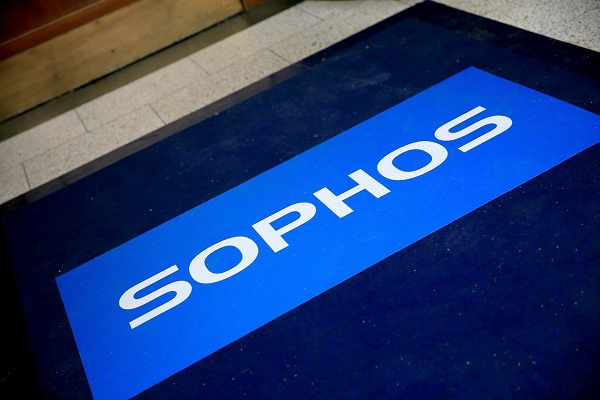Telecom
Sophos Unveils Powerful Cloud Workload Protection Advancements with New Linux and Container Security Offerings

Sophos, a global leader in next-generation cybersecurity, has unveiled advancements to Sophos Cloud Workload Protection, including new Linux host and container security capabilities.

These enhancements accelerate the detection and response of in-progress attacks and security incidents within Linux operating systems, improve security operations and bolster application performance.
According to new SophosLabs research, distributed denial-of-service (DDoS) tools, cryptocurrency miners and various types of backdoors were the top three types of Linux threats detected by Sophos in a dataset from January through March 2022. DDoS tools accounted for nearly half of all Linux malware detections during this time, likely due to automated attacks attempting to reinfect updated servers rapidly and repeatedly.

SophosLabs has also detected a recent increase in ransomware attackers attempting to use tools targeting virtual machine hypervisors, many of which run on Linux environments, to carry out their attacks.
“Linux environments continue to grow in surface area as organizations around the world increasingly migrate workloads to the cloud. Even though Linux is widely considered to be one of the most secure operating systems, it still harbors inherent and application-based risks and it is not immune to cyberattacks,” said Joe Levy, chief technology and product officer at Sophos.
“Attackers target Linux hosts and containers because they are high value, and often under protected.
“Sophos Cloud Workload Protection already automates and simplifies the prevention and detection of these attacks on Windows systems, and now Sophos is providing the same observations and capabilities to Linux operating systems.”
Securing Linux Infrastructure
Through the integration of Capsule8 technology, which Sophos acquired in July 2021, Sophos Cloud Workload Protection provides powerful and lightweight visibility into on-premise, data center and cloud-based Linux hosts and containers, securing them from advanced cyberthreats. It leverages analytics around attacker tactics, techniques and procedures (TTPs) to provide cloud-native threat detections, including:
• Container escapes: Identifies attackers escalating privileges from container access to hosts
• Cryptominers: Detects behaviors commonly associated with cryptocurrency miners
• Data destruction: Alerts that an attacker may be trying to delete indicators of compromise that are part of an ongoing investigation
• Kernel exploits: Highlights if internal kernel functions are being tampered with on a host
Once threats are detected, Sophos XDR (extended detection and response) assigns risk scores to incidents and provides contextual data that enable security analysts as well as the Sophos Managed Threat Response team to streamline investigations and focus on the highest priority incidents. Integrated Live Response further establishes a secure command line terminal to hosts for rapid remediation.

Sophos Cloud Workload Protection seamlessly integrates with the Sophos Adaptive Cybersecurity Ecosystem, which underpins the entire Sophos portfolio of solutions. The smart ecosystem unifies Sophos’ range of cloud-native security platform capabilities, including Sophos Cloud Workload Protection, Sophos Cloud Security Posture Management, Kubernetes security posture management, container image scanning, infrastructure-as-code scanning, cloud infrastructure entitlements management, and cloud spend monitoring, to ensure visibility, security and compliance.
Availability
Sophos Cloud Workload Protection is now available with Sophos Intercept X Advanced for Server with XDR and Sophos Managed Threat Response, and is managed within the cloud-native Sophos Central platform. It can be deployed as a single agent solution that is ideally suited for security operations teams, delivering flexible, lightweight protection with optimized resource limits, without deploying a kernel module.
Sophos Cloud Workload Protection will also soon be available as a Linux sensor. Ideally suited for DevSecOps and security operations center (SOC) teams requiring deep insight into mission-critical workloads with minimal performance impact, the Linux sensor will provide API integration into existing automation, orchestration, log management, and incident response solutions.
Telecom
NCC Orders Telcos Inform Subscribers of Data Breach within 48 Hours

Nigerian Communications Commission (NCC) has directed telecom operators in the country to notify affected customers of any data breach within 48 hours ( that is two day) of detecting such unauthorised infringement.

This directive was contained in the revised Internet Code of Practice 2026 by the NCC, on Friday.
The document seeks to define the rights and obligations of telecom operators in handing the rights of internet users to an open internet.
In the move to protect customer information, Mobile Network Operators (MNOs) and Internet Service Providers (ISPs) are to take necessary measures to protect customers’ data from unauthorised use, disclosure, access or breach.
Telecom operators must now notify affected customers within 48 hours of detecting a compromise through text message, email or any other effective means. As contained in Chapter 3.4 of the regulation titled “Data Breach Notifications,”
The telecoms companies are also directed to notify the NCC of such a breach not later than 48 hours after determining such a breach.
“Where full details of the breach are not immediately available, the provider shall issue a preliminary notification within the same period and furnish a comprehensive update within Fourteen (14) days thereafter, or within such extended period as the Commission may approve,” part of the section reads.
The guidelines, according to NCC, are in tandem with the provisions contained in the Nigerian Data Protection Act 2023 and Part VI of Schedule 1 of the Consumer Code of Practice Regulations 2024.
The regulation also joins other agencies’ policies, ensuring protection. Agencies such as the Nigeria Data Protection Commission (NDPC) and the Federal Competition and Consumer Protection Commission (FCCPC) protect consumers against misuse of personal data, identity theft, financial loss, and reputation damage.
The review comes at a time when privacy becomes core amid frequent breaches and illegal harvest of data such as biometric, national IDs, financial information, traffic and usage, and others.
Regulations are necessary for the proper handling, consent, and regulatory compliance regarding sensitive data, ensuring it is only processed for legitimate purposes.
Under Chapter 3.5, the Internet Code of Practice 2026 addressed the handling of harvesting of transactional data by notifying and getting approval from the NCC of any usage by a third party. It noted that the NCC approval will be defined by a review and assessment of such access and “its potential effects on national considerations, consumer information and personal data.”
Telecom
Globacom Promotes Valentine Gifting with Huge Discounts on Smartphones

Globacom has announced a Valentine Smartphone promotion, which provides incredible savings on a variety of high-end smartphones from top manufacturers including Tecno, Samsung, and Infinix.

Starting on February 9, the promotion provides substantial price reductions on a number of Samsung models, including the Galaxy Z Fold 7, Galaxy A07, Galaxy A56 5G, Galaxy A36 5G, and Galaxy A26 5G. Customers who buy any of the phones will also receive a complimentary travel pouch and charger, as well as up to 18GB of extra data for six months, only available on the Glo network.
Along with other Infinix models, Tecno devices are also offered at attractive discounts, giving customers a large range of smartphones to fit a variety of tastes and price ranges.
The goal of the Glo Valentine promotion is to provide customers with the best possible deals on carefully chosen smartphones that are renowned for their cutting-edge technology, stylish designs, and dependable performance. The offer, which includes alternatives to suit a range of budgets and lifestyles, reaffirms Globacom’s dedication to customer happiness, digital adoption, greater data usage, and client centricity.
The company revealed that the promotion aligned with customers’ expectations during celebratory seasons, when demand is highest for quality smartphones at affordable prices. The company added that its partnership with trusted global and regional brands such as Samsung, Infinix, and Tecno ensures that customers enjoy premium features without compromising on value.
“The Valentine season is about connection, and what better way to stay connected than with a smartphone that fits your needs and aspirations,” the company stated. “This promo gives our customers the chance to get their dream smartphones at some of the best prices of the year, along with generous data bonuses to keep them connected,” the company disclosed.
Customers are encouraged to visit Gloworld outlets nationwide to take advantage of the Valentine Smartphone Promo while stocks last.
Telecom
GBB Expands Broadband to 13 Underserved Communities In 2025

Galaxy Backbone Limited (GBB) has recorded a significant milestone in Nigeria’s digital transformation journey by advancing broadband connectivity to 13 underserved institutions and communities nationwide in 2025, reinforcing its position as the nation’s digital backbone and a trusted partner in national development.

Guided by its mandate to enable a digitally inclusive Nigeria, GBB deliberately extended connectivity to locations within reach of its infrastructure footprint, particularly institutions with strong potential for productive use but limited readiness for immediate commercial engagement. Through this effort, the organisation continues to unlock opportunity, stimulate innovation, and support sustainable growth across critical sectors of the economy.
The expansion reached three Federal Universities, two Local Government Areas, and eight Federal Secretariats, strengthening digital capabilities in education and public administration while enhancing service delivery across the country.
GBB also extended reliable broadband connectivity to strategic and cultural landmarks such as the Nnamdi Azikiwe International Airport, Abuja, underscoring its commitment to supporting national infrastructure that drives economic activity, mobility, and global connectivity.
These deployments highlight Galaxy Backbone’s resolve to bridge the digital divide and empower institutions that shape Nigeria’s future. They demonstrate the measurable national impact of GBB’s infrastructure investments and reflect the tangible progress of the Integrated Digital Transformation Strategy (IDTS), further solidifying the organisation’s role as the platform upon which government institutions and communities can confidently build their digital future.
More importantly, the milestone illustrates that GBB’s work extends beyond technology by enabling education, improving governance, supporting economic participation, and connecting citizens to opportunity.
The initiative aligns with the Federal Government’s broadband penetration objectives and complements national programmes such as Project 774 – Universities’ Hostel Connectivity, ensuring coordinated, scalable, and sustainable impact across the country. Commenting on the achievement, Galaxy Backbone noted that every new connection brings Nigeria closer to a more inclusive digital economy while reinforcing the infrastructure required for innovation and national competitiveness.
As implementation continues, GBB remains committed to expanding access, pushing boundaries, and delivering on the promise of a fully digital nation, with further updates expected as additional phases of the deployment progress.
Galaxy Backbone Limited is the Federal Government’s digital infrastructure and shared services provider, dedicated to delivering secure, reliable, and scalable ICT solutions that support efficient governance, innovation, and sustainable national development.

 E-Financial3 days ago
E-Financial3 days agoBillions in Nigeria’s Reserves, But Where is the Growth?

 Telecom3 days ago
Telecom3 days agoQNET unveils ‘Energize Everyday’ theme, intensifies consumer protection, media partnership in 2026

 News2 days ago
News2 days agoNITDA Explores Partnership with Trust Stamp on Digital Trust and Innovation

 E-Financial3 days ago
E-Financial3 days agoAdedeji, NRS Boss says Technology is Crucial to Tax Reform’s Success

 E-Financial2 days ago
E-Financial2 days agoNAICOM Targets Resilient, Global Competition Market in Insurance Sector Consolidation

 E-Business3 days ago
E-Business3 days agoKaspersky Reports 15% Growth in Malicious email Attacks in 2025

 News3 days ago
News3 days agoNDIC Moves to Boost Customers’ Confidence in Nigerian Banks

 General News3 days ago
General News3 days agoRussia Blocks WhatsApp, Pushes State App Max as Alternative Amid Telegram Clampdown

























